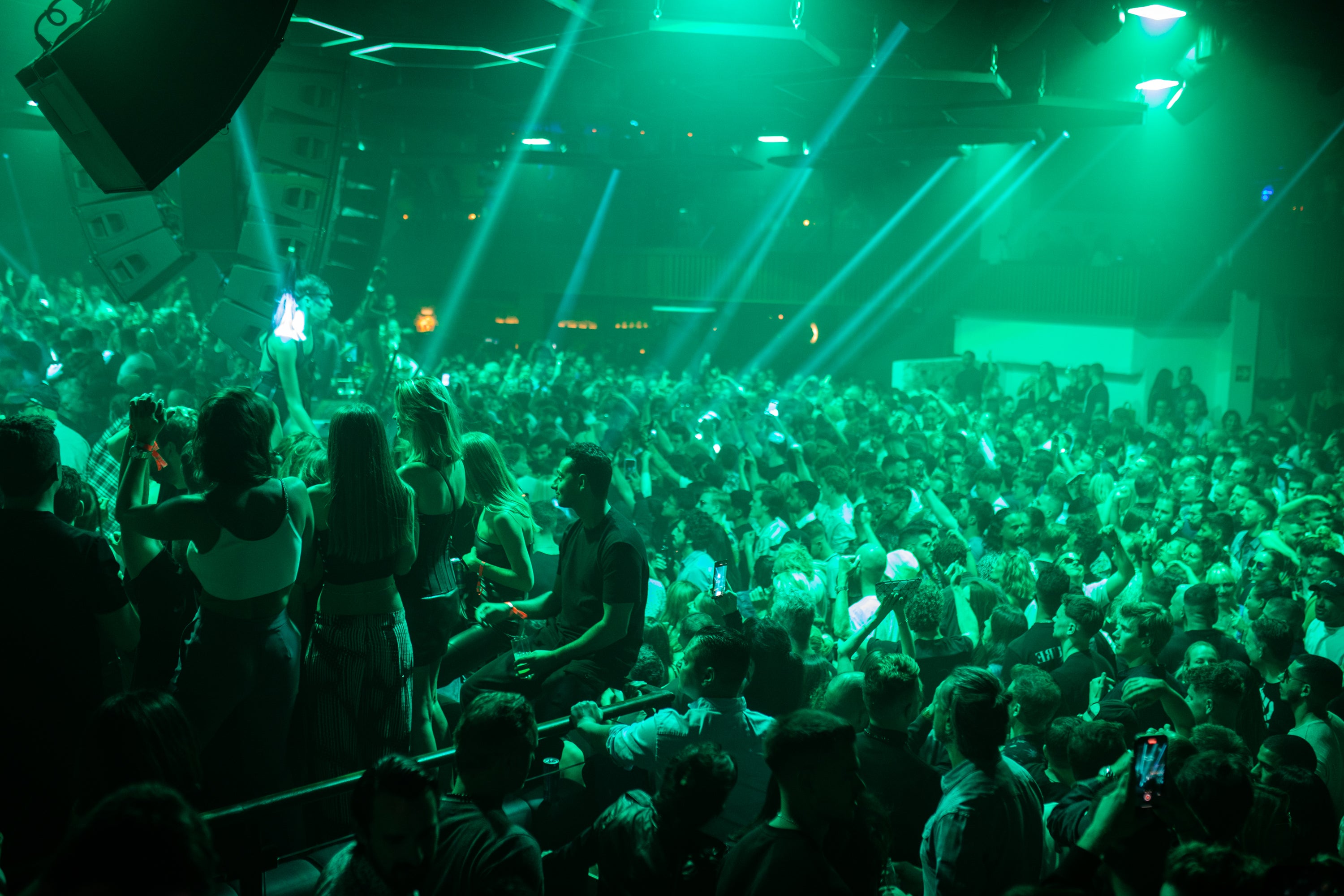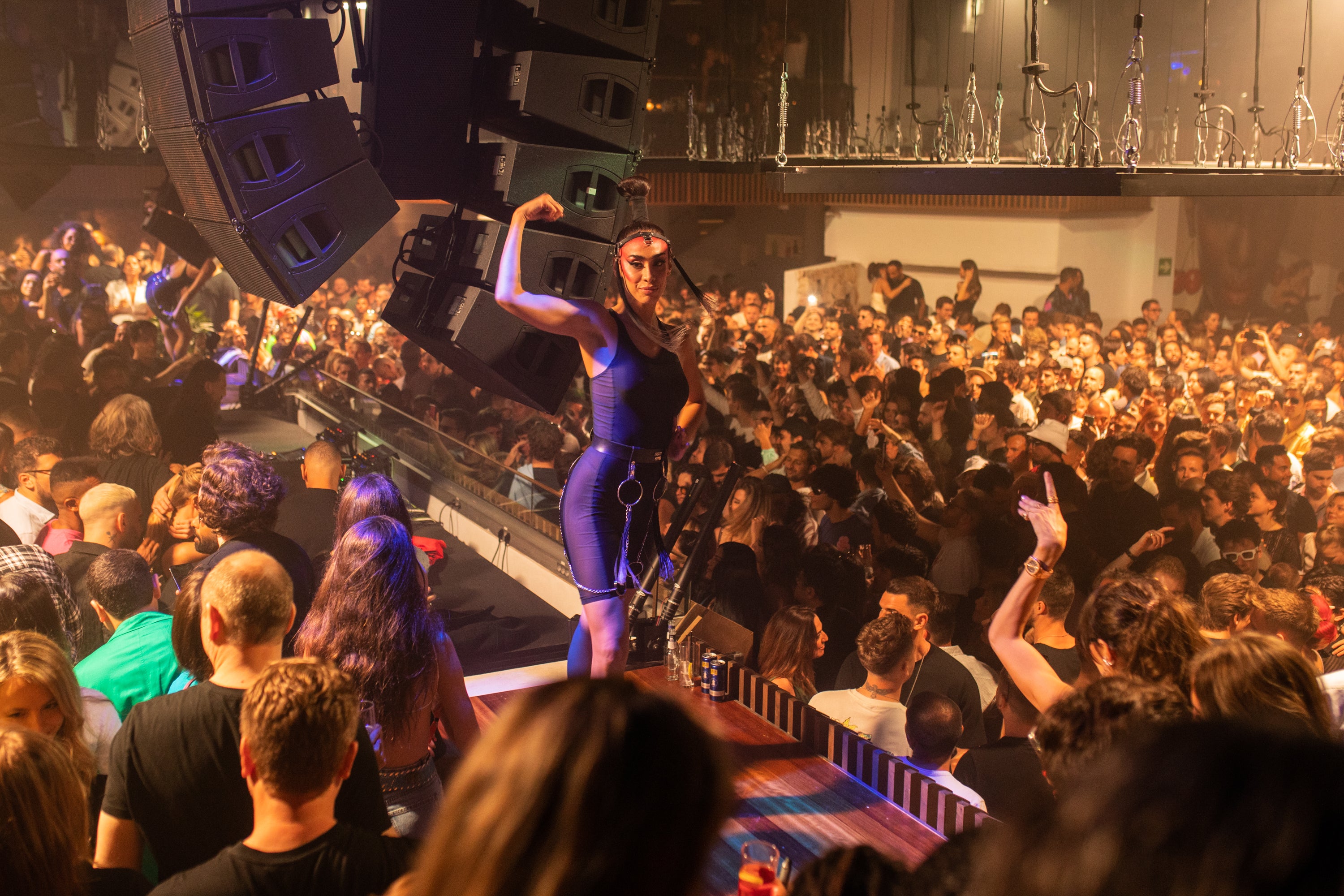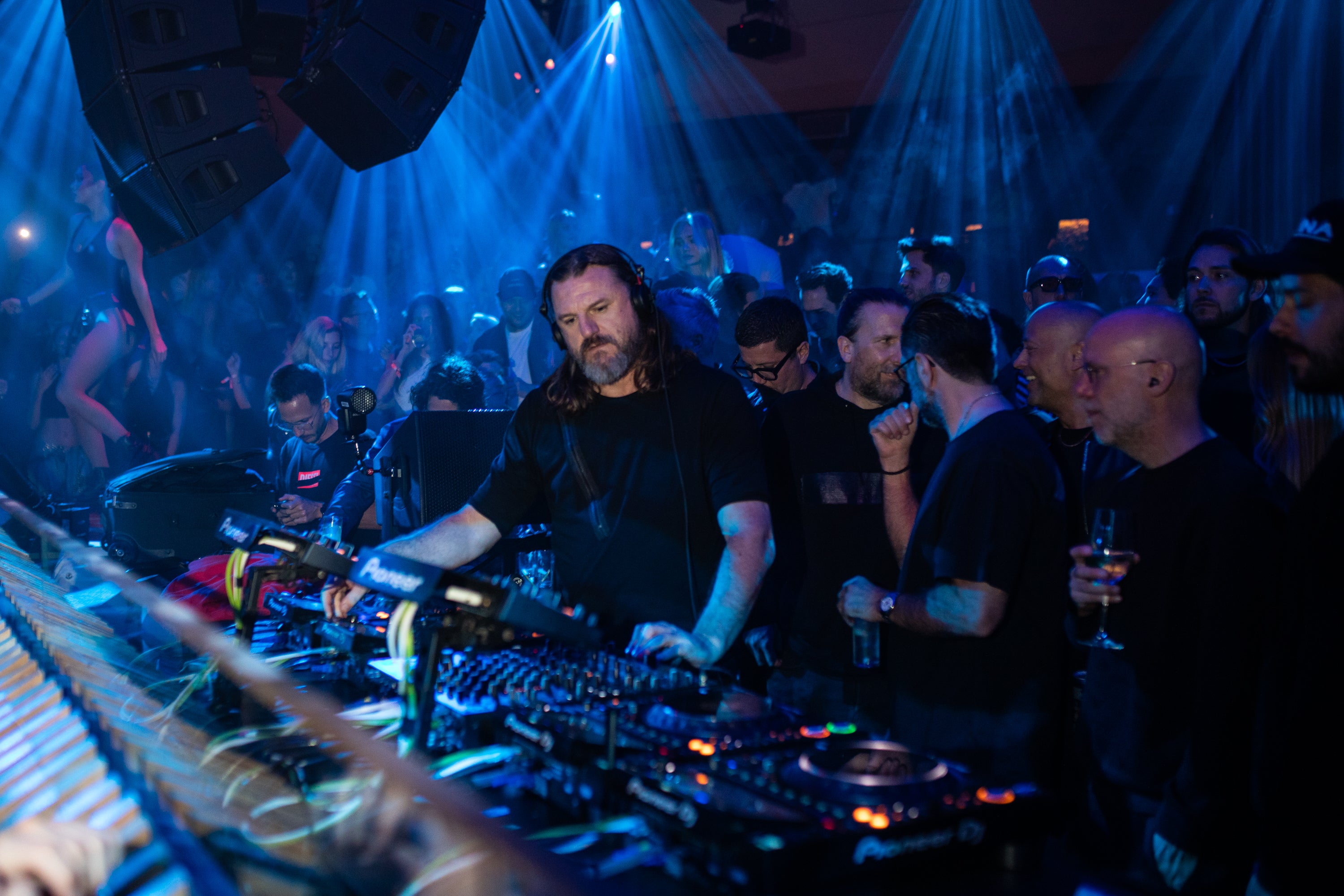The Independent's journalism is supported by our readers. When you purchase through links on our site, we may earn commission.
As Ibiza reopens, clubbers are making up for lost time
Europe’s clubbers seem ready to relive the days when nobody had ever heard of Covid-19, reports Thomas Rogers

Your support helps us to tell the story
From reproductive rights to climate change to Big Tech, The Independent is on the ground when the story is developing. Whether it's investigating the financials of Elon Musk's pro-Trump PAC or producing our latest documentary, 'The A Word', which shines a light on the American women fighting for reproductive rights, we know how important it is to parse out the facts from the messaging.
At such a critical moment in US history, we need reporters on the ground. Your donation allows us to keep sending journalists to speak to both sides of the story.
The Independent is trusted by Americans across the entire political spectrum. And unlike many other quality news outlets, we choose not to lock Americans out of our reporting and analysis with paywalls. We believe quality journalism should be available to everyone, paid for by those who can afford it.
Your support makes all the difference.As the sun is setting over Ibiza, the party at Ushuaïa is just hitting its stride. Nearly 8,000 people have gathered at the outdoor megaclub for the beginning of the island’s first clubbing season in three years, and the crowd seems intent on making up for lost time.
While Artbat, a Ukrainian DJ duo, plays a high-octane blend of house and techno, the dancers heave around the club’s large pool, cheered on by guests from the overlooking hotel balconies. In the VIP section, a parade of staff carrying sparklers announce that a high-paying guest has just purchased another pricey bottle of Champagne.
Sipping a drink at the bar, Mina Mallet, a heavily tattooed 25-year-old finance worker from Zurich, says that the reopening of Ibiza’s clubs marks the end of a difficult and tedious period in Europe. “It means a new beginning: for enjoying life, enjoying our freedom and getting wasted,” she said. “I actually think people are going harder than before.”
After more than two years of uncertainty for nightclubs, governments across Europe have gradually dropped many of their pandemic restrictions over the last few months, allowing clubs to reopen with a sense of relative stability for the first time in two years.
In many countries, including Spain, Germany and Britain, governments now allow clubs to welcome visitors without any vaccine checks, masks or distancing requirements. And although the pandemic is not yet over, and a new variant could appear anytime to spoil the fun, Europe’s clubbers seem ready to relive the days when nobody had ever heard of Covid.
The return of the clubs has come as a relief to many workers in the nightlife sector, which has been especially hard-hit. Before the pandemic, 45 per cent of the gross domestic product in the Balearic Islands, which include Ibiza, came from tourism, for which clubbing is a major draw. In the first half of last year, tourist spending in Ibiza and the nearby island of Formentera was less than one-third of pre-pandemic levels, according to the Statistical Institute of the Balearic Islands.

Ocio de Ibiza, a local nightlife association, estimates that 30,000 people travelled to Ibiza on a recent weekend to go to the clubs, a number on par with a pre-pandemic opening weekend. Sanjay Nandi, the chief executive of the group that runs Pacha nightclub, says advance ticket sales have surpassed those of previous years. Of the island’s major clubs, only one, Privilege, does not yet have plans to reopen this summer.
“I know we are very lucky,” Nandi says, explaining that, like other clubs, Pacha had received help from Spain’s government in the form of a furlough programme for staff. The company also received a loan of €18m (£15m) from the government’s Recapitalisation Fund for pandemic-hit businesses, and it was able to get some revenue through its constellation of restaurants and other venues. Nandi says that the size of Ibiza’s major clubs – whose capacities range from around 3,000 to 7,800 – and their associated political clout allows them to weather the pandemic better than smaller venues. “Being bigger helps,” he says.
Other clubs in Europe have been less fortunate. According to France24, the French broadcaster, 200 clubbing venues in the country have permanently closed because of the pandemic. A survey released in October by the Night Time Industries Association, a British lobbying group, found that 22 per cent of the city’s clubs had shut since the pandemic started.

Amy Lamé, London’s night czar, a city hall official charged with liaising between nightlife businesses and city authorities, says that the city is still doing its own assessment of the damage done. Although the British government gave relief grants to venues, she says, the country’s unpredictable public health measures, “which sometimes changed from one day to the next”, have posed a particular challenge.
Lamé adds that the city has also provided targeted aid to what she describes as the most “vulnerable” venues, including LGBT+ clubs. These grants mean that all of London’s LGBT+ clubs survived the pandemic, she says. “If we lose those kinds of venues, we lose part of the essence of London,” Lamé says.
Perhaps the most ambitious measures to protect the clubbing sector have been taken in Berlin, another European clubbing capital where nightlife is recognised as a key driver of the city economy. According to a 2018 study by the Berlin Club Commission, tourists visiting the German capital for its club scene contributed approximately $1.7bn to the city’s economy.

As well as offering financial aid for small and large businesses during the pandemic, German officials classified clubs as cultural venues, allowing them to access a €2bn fund meant for institutions such as museums and theatres. In Berlin, extra emergency funding was also made available for closed clubs. Kyle Van Horn, the managing director of Trauma Bar und Kino, a Berlin club and arts venue, says the pandemic was a turning point in the way officials have treated clubs. “I think there was a change from the side of the government; they are finally seeing us as relevant contributors to society,” he says.
Lutz Leichsenring, a Club Commission spokesperson, says that thanks to the support, no Berlin clubs closed as a direct result of pandemic restrictions. “The aid money was done in a very well-targeted way,” he says. He explains that the pandemic had vindicated years-long efforts by Berlin’s clubbing industry to mobilise as a political force. “We were very well networked as a sector,” he says.
And perhaps inevitably, the social changes of the past two years are also making themselves felt on the dance floor. Steven Braines, a co-founder of He.She.They, a London-based record label and event company organising LGBT+-inclusive parties at Ibiza’s Amnesia megaclub this season, said club organisers were now more focused on expanding gender and racial diversity among the acts they booked, which he said was partly a result of the heightened international visibility of movements like #MeToo and Black Lives Matter during the pandemic.
Braines adds that he sensed that men “maybe aren’t as predatorial anymore on the dance floor”. Club culture would be reshaped, he saidsays by a cohort of 18- to 20-year-olds who were now visiting clubs for the first time, and who had less experience with drugs and alcohol.
One night, some of these newcomers are gathering outside Amnesia, on a highway outside Ibiza’s largest town. “I had just turned 18 when the pandemic happened, and everyone told me that I had lost the best years of going out,” says Sebastian Ochoa, 20, who works in social media in Madrid. “When I go out at home, there’s a limit, but here there’s the party, the after-party, the after-after-party. I’m here to make up for lost time.”
This article originally appeared in The New York Times




Join our commenting forum
Join thought-provoking conversations, follow other Independent readers and see their replies
Comments